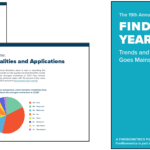Glenn Larson is warning that the declining popularity of cash could have a disproportionate impact on the world’s unbanked population. Larson is Acuant’s Vice President of Engineering, as well as an active member of the Forbes Technology Council.

As a member of the Council, Larson is particularly concerned about the effects of COVID-19, which has led to a dramatic decrease in the number of cash payments and a corresponding increase in the use of cards due to sanitary concerns around cash and coin. He indicated that the change is likely to be permanent in a recent article, noting that cash is now being used in only 10 percent of all transactions as people prioritize digital alternatives.
However, that creates an issue for the 1.7 billion adults who do not have reliable access to the financial system, either because they do not have an official ID, or because they live in an area with poor financial infrastructure. Those people rely on cash for all of their transactions, leaving them stranded if cash were to get phased out without a suitable replacement.
With that in mind, Larson argues that governments need to find ways to make digital banking services more inclusive and more accessible. He specifically advocates for the creation of digital identity systems that will make it easier for financial institutions to verify the identities of their customers online through biometrics or some other means. Doing so will make digital transactions more secure while reducing the number of obstacles for consumers.
Larson also believes that governments and the private sector need to work together to educate people about the benefits of digital identity systems, and the steps they need to take to protect their personal information in such an environment. He praised the ongoing digital identity initiatives that are now underway in places like India, Kenya, and the European Union.
Acuant is itself a provider of digital identity verification services, and recently achieved iBeta Level 2 PAD compliance with its FaceID facial recognition solution.
–
October 19, 2020 – by Eric Weiss








Follow Us